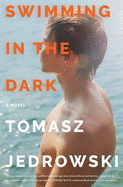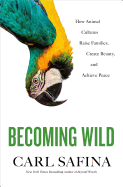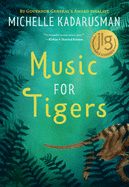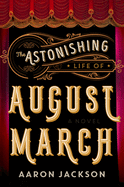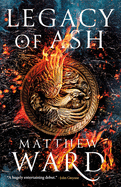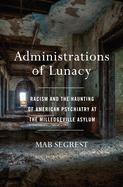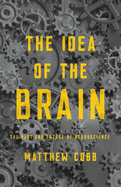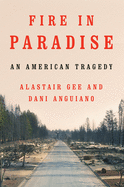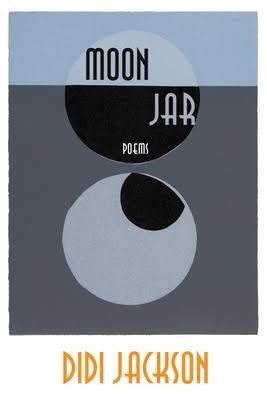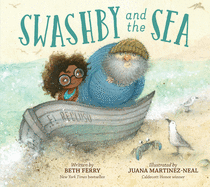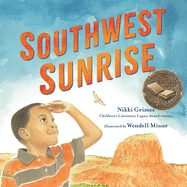Friday, May 8, 2020
Mother's Day is this weekend and, in whatever form your celebrations might take, we can always turn to books to celebrate those who hold motherly roles in our lives.
 In My Anaana's Amautik by Nadia Sammurtok, illus. by Lenny Lishchenko (Inhabit Media, $16.95) features an infant narrator who uses easily understandable comparisons to detail the pouch in the back of a mother's parka. The audience will share in their contentment as pre-readers learn about this intimate bond-building element of child-rearing in Inuit culture. Adults and the little ones to whom they read can connect within the glow of this cultural gem as it hugs them in an atmosphere of love.
In My Anaana's Amautik by Nadia Sammurtok, illus. by Lenny Lishchenko (Inhabit Media, $16.95) features an infant narrator who uses easily understandable comparisons to detail the pouch in the back of a mother's parka. The audience will share in their contentment as pre-readers learn about this intimate bond-building element of child-rearing in Inuit culture. Adults and the little ones to whom they read can connect within the glow of this cultural gem as it hugs them in an atmosphere of love.
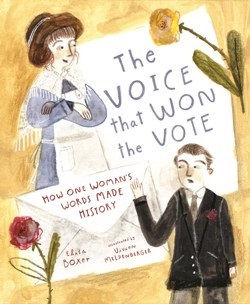 Journalist Elisa Boxer's uplifting children's book debut, The Voice that Won the Vote: How One Woman's Words Made History (Sleeping Bear Press, $16.99, ages 6-10), tells a little-known tale about how one mother--Febb Burn--changed the course of women's suffrage in the United States. Boxer's text is friendly and upbeat, and illustrator Vivien Mildenberger's uncomplicated style and earth-toned palette allow her figures' facial expressions and body language to take center stage.
Journalist Elisa Boxer's uplifting children's book debut, The Voice that Won the Vote: How One Woman's Words Made History (Sleeping Bear Press, $16.99, ages 6-10), tells a little-known tale about how one mother--Febb Burn--changed the course of women's suffrage in the United States. Boxer's text is friendly and upbeat, and illustrator Vivien Mildenberger's uncomplicated style and earth-toned palette allow her figures' facial expressions and body language to take center stage.
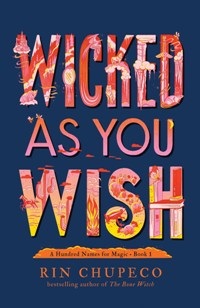 In Wicked as You Wish (Sourcebooks Fire, $17.99, ages 12-up), Rin Chupeco boldly mixes fairytales, myths and contemporary culture into unusual, exciting and oddly familiar combinations. Tala is, like her mother, a "spellbreaker" who negates magic. Born in Avalon, her Filipino mother and Scottish father were among the protectors of the kingdom until the Wonderland Wars that led to Avalon's encasement in ice. It is now up to Tala, her parents and her lethal Filipino aunties and uncles to rescue Avalon. Chupeco's fusing of myths and fairytales blends the familiar with the made-up until her entire world has a feeling of the uncanny about it.
In Wicked as You Wish (Sourcebooks Fire, $17.99, ages 12-up), Rin Chupeco boldly mixes fairytales, myths and contemporary culture into unusual, exciting and oddly familiar combinations. Tala is, like her mother, a "spellbreaker" who negates magic. Born in Avalon, her Filipino mother and Scottish father were among the protectors of the kingdom until the Wonderland Wars that led to Avalon's encasement in ice. It is now up to Tala, her parents and her lethal Filipino aunties and uncles to rescue Avalon. Chupeco's fusing of myths and fairytales blends the familiar with the made-up until her entire world has a feeling of the uncanny about it.
Swimming in the Dark
by Tomasz Jedrowski
In Swimming in the Dark, two young men embark on a forbidden love affair during the final decade of Communist rule in 1980s Poland. Ludwik grew up with his mother and grandmother in Wrocław (the former German city of Breslau), displaced in an apartment "deserted by some family we'd never know, their dishes still in the sink, their bread crumbs on the table." Ludwik secretly listens to Radio Free Europe for news from the West and imagines a different life. Near the end of his studies, Ludwik's life irrevocably changes while attending an agricultural camp, picking beets.
Ludwik meets the handsome, confident Janusz but, overcome by shame, he merely admires him from afar. One day, Ludwik stumbles upon Janusz slumbering by a lake, and is coaxed to join him for a swim, where they become "one single body floating in the lake, weightless, never touching the ground." They share a blissful few weeks together, furtively reading a copy of James Baldwin's Giovanni's Room that articulates the feelings they never knew how to express. When camp ends, their respite from the real world gives way to circumstances beyond their control--a corrupt government that rewards the well-connected and leaves the masses to suffer, and a pervasive feeling of powerlessness in a society that punishes homosexuals.
Tomasz Jedrowski's sophisticated debut balances the exhilarating power of first love and what happens when the bubble bursts, as Janusz chooses assimilation into the Communist Party while Ludwik opts for agitation and dreams of the West. Wistful and incisive, Swimming in the Dark is a stirring novel of passion and depth. --Frank Brasile, librarian
Discover: This poignant debut follows two men as their euphoric affair gives way to the harsh realities of life in Poland during the last decade of Communism.
All Adults Here
by Emma Straub
The notion of parental love consumes Emma Straub's endearing characters in All Adults Here. As the novel begins, 68-year-old Astrid Strick watches an empty school bus plow down Barbara Baker, a fixture in their Hudson Valley town of Clapham. Although Astrid didn't like Barbara--"not for a single day of their forty-year-acquaintance," Straub writes in her deliciously withering opener--the death forecloses Astrid's chance to resolve something with Barbara that happened decades earlier and concerned Astrid's eldest child, Elliot. Nevertheless, Astrid feels obliged to interpret Barbara's death as a prompt to forge a less steely persona, and she takes the opportunity of a family brunch to tell her kin that she has been in reciprocal love with a woman for the past several years.
Another secret keeper is Astrid's middle child, 38-year-old Porter, a dairy farmer who still lives in Clapham. About halfway through a pregnancy made possible by a sperm bank, Porter is leery of breaking the news to Astrid, but Porter must concede that her mom's confession was like a cattle prod. And when Cecelia, the 13-year-old daughter of Astrid's youngest child, Nicky, gets in trouble at her Brooklyn school, she is handed her off to her grandmother Astrid, so that the girl can make a fresh start at Clapham Junior High.
Cecelia's late-summer arrival, like Barbara's death, launches All Adults Here, some of whose fine moments are gasp-worthy. Straub (Modern Lovers) belongs in the company of Cathleen Schine, Tom Perrotta and other fiction writers who understand that the degree of humor that can be teased from family drama is often directly proportional to the extent of the family's misery. --Nell Beram, author and freelance writer
Discover: This unhappy-family novel revolves around a sympathetic cluster of maturity-challenged adults and a teenager who is arguably the most grown-up among them.
The Astonishing Life of August March
by Aaron Jackson
An abandoned baby's journey from precocious orphan to homeless criminal to artist makes for an enchanting story of destiny in Aaron Jackson's debut novel, The Astonishing Life of August March.
It's the 1930s in New York City at the Scarsenguard Theater. During a play's intermission, an actress waddles backstage to give birth to a baby boy and returns to the stage as the curtain rises on Act II. Since motherhood would be inconvenient for her career, the actress leaves the newborn under some clothing in her dressing room after curtain call and dashes off to drinks with a Hollywood producer. Eugenia Butler, the theater's octogenarian seamstress, finds the baby, lulls him to sleep with stale champagne, leaves the boy in a closet and goes home.
But unlike the actress who gave him life, Eugenia returns the next day and begins raising the boy backstage, naming him August March. He learns to walk, talk, read and write without ever leaving the theater, by watching rehearsals and performances from the wings, and from interactions with an actor who befriends him. August's vocabulary and theatrical mannerisms lend him an air of sophistication and intelligence. Will this informal education be enough when he's thrust out onto the streets of New York with no concept of real-world survival?
Author and comedian Jackson deserves a standing ovation for striking a bittersweet balance between the cruelty of characters expected to love a child and a naïve kid's will to live. August's struggles show that life is hard, but readers will be comforted and inspired by his resiliency and where he ends up. --Paul Dinh-McCrillis, freelance reviewer.
Discover: This debut novel is an uplifting and timeless story of overcoming misfortune with resiliency.
Science Fiction & Fantasy
Legacy of Ash: Book One of the Legacy Trilogy
by Matthew Ward
Legacy of Ash, video game designer Matthew Ward's debut novel, is the beginning to the Legacy Trilogy, a hefty fantasy epic that relies on impeccable world building, instead of savagery and sex, to build suspense. Ward has created a novel with such intention and craftsmanship that it brings back that feeling of excitement fantasy readers felt when discovering masters like J.R.R. Tolkien and C.S. Lewis.
Fifteen years earlier, Katya Trelan ignited a revolution to win the ultimate power, but paid the price with her life. Now, her children--son Josiri and daughter Caleene--must turn to Viktor Akadra, the Black Knight, to save their kingdom from external threats. This hero of the Tressian Republic is also known as the Phoenix-Slayer; he vanquished Josiri and Caleene's mother in her quest for dominance. While the three put aside their differences to work together to save the kingdom, Viktor is hiding a devastating secret: the old darkness is rising, and he just might be the vessel for its re-emergence.
As dark forces grow, the paths of men and gods merge, so that it is no longer simply a battle between kingdoms; it is now a battle between the gods among men. Steampunk-esque magic and mythology-inspired deities create a vibrant setting with intertwining storylines, thoughtful character development and impressive world building. At the end, readers will be eager for the revelations in the next books in the series. --BrocheAroe Fabian, owner, River Dog Book Co.
Discover: In this meticulously crafted fantasy debut, heroes and gods battle for powerful kingdoms.
Psychology & Self-Help
Administrations of Lunacy: Racism and the Haunting of American Psychiatry at the Milledgeville Asylum
by Mab Segrest
In this meticulously researched chronicle of the once-largest insane asylum in the world, social justice advocate Mab Segrest (Memoir of a Race Traitor) holistically examines the relationship between racism, psychiatry and the United States' for-profit prison system.
Built on land appropriated from the Muscogee, the Georgia State Lunatic, Idiot, and Epileptic Asylum opened in 1842 during Milledgeville's tenure as the capital of Georgia. At the time, mental health professionals espoused the racist view that people of color lacked the mental capacity for insanity, and the asylum housed only white patients until 1867. After the admission of black patients, the institution practiced racial segregation. Supplies from clothing and hygiene items to books and writing implements were overwhelmingly allocated to the white wards. Treatments that began with bleeding and the liberal use of emetics in the 1840s metamorphosed through the decades to encompass a list of abuses that included forced sterilization of women patients and mandatory labor under dangerous conditions, a development parallel to the rise of chain gangs and prison farms designed "to provide a cheap and controlled labor force after emancipation."
Based on a decade of research, Segrest's narrative charts the asylum's growth against the historic events happening outside its doors. The resulting overview of how psychiatric beds shifted out of asylums and into the prison pipeline is a comprehensive, important and gut-twisting account of how racist policies continue to shape healthcare and the prison system in the social landscape of the U.S. --Jaclyn Fulwood, blogger at Infinite Reads
Discover: Based on a decade of research, this important history links the rise and fall of a major American insane asylum with the growth of the for-profit prison system.
Science
The Idea of the Brain: The Past and Future of Neuroscience
by Matthew Cobb
As Matthew Cobb explains, The Idea of the Brain: The Past and Future of Neuroscience is not "a history of neuroscience, nor a history of brain anatomy and physiology, nor a history of the study of consciousness, nor a history of psychology." It is, rather, a fascinating amalgamation of all of these sciences, with a fair dose of technology and philosophy thrown in.
Starting from the ancient era, Cobb (Life's Greatest Secret; Generation) traces musings on the brain by Greek physicians, such as Galen, and other early thinkers, like Avicenna, through the French philosophers and the English humanists, to the American scientists of the early 20th century. He shows how ideas changed over time, with each era comparing the brain with the most advanced technology of the day--whether that was galvanism, automatons or telephones.
The large middle section of the book is dedicated to the present day, and the frequent comparison of the brain to computers or coding, although he says these examples aren't fully accurate either. As Cobb points out, "the structures in the brain are not modules that are isolated from one another--they are not like the self-contained components of a machine"--making it, ironically, hard for our brains to comprehend our brains.
So, what will be the future of neuroscience? Cobb explores this with nuance and openness, detailing potential future options sure to intrigue readers. Scientists as well as the less technically minded are sure to be fascinated by The Idea of the Brain. --Jessica Howard, bookseller at Bookmans, Tucson, Ariz.
Discover: This fascinating look at neuroscience over the ages is sure to appeal to those interested in history and science.
Nature & Environment
Becoming Wild: How Animal Cultures Raise Families, Create Beauty, and Achieve Peace
by Carl Safina
Ecologist Carl Safina (Beyond Words; Eye of the Albatross) shines a light on the intricacies of animal cultures in his engaging and eye-opening 10th book, Becoming Wild.
"From one another we become who we are." Humankind is not alone in its development of culture, as Safina demonstrates through his exploration of three distinct animal types. Through the use of social learning, sperm whales are culturally "their own mosaic of learned traditions," sharing genetic code across the species but maintaining different identities and behaviors from clan to clan. "Bright splashes of extravagance," the beauty of colorful macaw parrots in the Peruvian Amazon defies expectations of traditional evolutionary theory, implying the importance of cultural selection in evolutionary development. The male-dominated and often violent clans of chimpanzees in the Budongo Forest of Uganda demonstrate the importance of reconciliation in cultures of high-level conflicts, necessitating a complex social web of relationships and "the knowledge of mothers conveyed to children through ages of deep, wild history."
Alternating measured discussion of compiled research (scientific, historical and literary) and more exuberant personal exploration of his firsthand field experience, Safina celebrates the phenomenon of cultural diversity. Culture, he asserts, is not limited to humankind and does not make us superior to other animals. Chimpanzees, for instance, are not the "harbinger of humankind" but rather our evolutionary contemporaries, evolving laterally to humans and with just as much complexity.
Safina's enthusiasm for the animal kingdom is contagious, and his clear writing makes his wide-reaching subject both approachable and tangible. Genetic and cultural evolution have been, as he says, "a long, strange trip. But here we are, all together now." --Jennifer Oleinik, freelance writer and editor
Discover: Ecologist Carl Safina explores the importance and complexity of cultural development in the animal kingdom.
Fire in Paradise: An American Tragedy
by Alastair Gee and Dani Anguiano
Fire in Paradise: An American Tragedy is a gripping reconstruction of the 2018 wildfire that devastated the California town of Paradise, leaving at least 85 dead. Alastair Gee and Dani Anguiano, journalists at the Guardian, bring their experience reporting on the fire and its aftermath to bear, relying heavily on interviews and eyewitness accounts to convey frightening scope and intensity of what came to be known as the Camp Fire. Fire in Paradise contains accounts of dozens of near-death experiences, including a desperate hospital evacuation and a family that had to wait out the fire in a freezing lake. The scale of the disaster is enormous, but the authors' focus on individual survival lends the book harrowing intimacy.
Gee and Anguiano also provide an overview of the circumstances that led to the Camp Fire, explaining the pattern of increasingly frequent and enormous wildfires due to climate change, the "shrubification" of California and, ironically, aggressive fire suppression efforts. Paradise's fire preparations and evacuation plans proved inadequate in the face of this new breed of fire, and the authors warn that circumstances are likely to get worse. After the fire turned much of Paradise to ash, the book follows its largely homeless former citizens as they make difficult decisions about their futures, including whether or not to rebuild Paradise.
Like many books recounting disasters, Fire in Paradise contains as much heroism as it does dangerous negligence. This one, though,is not just about Paradise and the Camp Fire, but the fires to come. --Hank Stephenson, manuscript reader, the Sun magazine
Discover: This deeply reported reconstruction of a fire that devastated the town of Paradise is made especially harrowing by the numerous accounts of near-death escapes from the survivors.
Poetry
Moon Jar
by Didi Jackson
In her moving debut collection, poet Didi Jackson creates a poetics of grief to cope with the suicide of her husband.
Moon Jar is a testament to resilience. Split into three parts, the book follows the poet's journey from devastation to rebirth. The first section deals poignantly with the suicide and what seems an irreconcilable loss. "I will expose old scars and breast feed/ a shadow of myself," the poet declares in "kill lies all." Jackson at first writes in a spare style as she processes grief. In these early poems, figurative language bleeds through the spareness like light filtering through a gloomy room. In "After the Suicide," the "throat/ of our home fills like gardenias in bloom." In "Directions for My Son on His 19th Birthday," pieces of song are "melting from the speaker." One of the best poems, "A Poem in Reverse," imagines time rewinding to before the suicide.
Something happens in the second and third parts of the book, though. The poet remarries. Life reanimates. These sections are distinguished by a refreshing sensuality that serves as a counterpoint to the collection's earlier bleakness. The poet travels, muses on food and art, makes love. "All the answers sink like lures, shiny and brilliant,/ uselessly swaying like slowly nodding heads," she writes of the sea in "Rakomelo." Nascent joy underlies the language here. The new husband's hands are "warm as Sunday." Pelicans "lift and align/ like the typed letters of a new name."
Moon Jar is a haunting yet edifying experience. Jackson shows that poetry can pull the world together when it seems completely torn apart. A poet to watch. --Scott Neuffer, writer, poet, editor of trampset
Discover: This debut collection of poetry grapples with the suicide of a loved one and life's renewal in the wake of tragedy.
The Best Poems of Jane Kenyon
by Jane Kenyon
Jane Kenyon's poem "Evening at a Country Inn" is narrated by a voice watching a loved one, distracted by the memory of a violent accident. The final lines are "I wish you would look at the hay--/ the beautiful sane and solid bales/ of hay." Much of Kenyon's extraordinary work is about walking that tightrope: between the natural heartaches that come with being alive, and the beauty, the serenity that can come with choosing to enjoy that life, even in the face of despair. Poet laureate of New Hampshire, Kenyon filled only four collections during her lifetime--cut short by leukemia in 1995--but even a brief work like "Biscuit" lingers for hours after.
Selected by her husband, Donald Hall, prior to his death in 2018, The Best Poems of Jane Kenyon offers a perfect introduction to the poet's work for new readers. Readers can feel her command of language in each poem; her vocabulary can be extremely concise, yet certain phrases linger in the mind for hours after. Longer poems such as "The Stroller" (written about her father) also demonstrate her understanding of form and the bittersweet quality of her voice. Poetry appeared to have been a crossroads for Kenyon, a place where she could reconcile her depression and her losses with the same spirit that called on her to write. To read this book, then, is to visit that place and to marvel at the wonders it holds. --C.M. Crockford, freelance reviewer
Discover: This compilation showcases former New Hampshire poet laureate Jane Kenyon's haunting, playful work.
Children's & Young Adult
Music for Tigers
by Michelle Kadarusman
The magic and mystery of the Tasmanian rain forest take center stage in Michelle Kadarusman's novel about a middle-grade Canadian girl finding herself--and a species believed to be extinct--in the wilds of Australia. Incorporating themes of diversity and environmental preservation into her adventure, Kadarusman (Girl of the Southern Sea) creates a story straight out of adolescent daydreams.
Louisa is less than thrilled about going to the other side of the world for the summer to stay with her uncle at his family's bush camp. She comes from a family of scientists, but her passion is music. She loves the violin and has an audition coming up she's certain she should be practicing for, instead of "walking through the land of creepy-crawlies." It isn't long, however, before Louisa sees past the creepy-crawlies to the beauty and wonder around her, including a nearby Tasmanian tiger sanctuary created by her great-grandmother. The world believes the large marsupial is extinct, but one lone tiger still inhabits the sanctuary. As the government comes to reclaim the land for a mining project, it's up to Louisa, her uncle and her quirky friend Colin to lure out the elusive tiger and move it to safety.
As Louisa discovers a new, exciting side of herself, Kadarusman guides readers through the majestic intricacies of a remote corner of Australia. She pays homage to the Australian Aborigines, granting deep respect to their role as caretakers of the Tasmanian rain forest, and paints her characters as respectfully and authentically as the setting. The friendship that evolves between Louisa and Colin, who is on the autism spectrum, adds a layer of complexity to Louisa's character as well as to the plot itself. Compassionate and endearing, Music for Tigers hits all the right notes. --Jen Forbus, freelancer
Discover: A middle schooler from Toronto helps her Australian uncle save perhaps the last member of a species the world believes is extinct.
Swashby and the Sea
by Beth Ferry, illus. by Juana Martinez-Neal
After a few judicious edits from his wise friend the sea, a retired mariner's messages of misanthropy spark an intergenerational friendship in this picture book frolic by Beth Ferry (Ten Rules of the Birthday Wish), illustrated by Caldecott Honor recipient and Sibert Medal winner Juana Martinez-Neal (Alma and How She Got Her Name; Fry Bread).
Captain Swashby's retirement next to his old friend the sea is "salty and sandy and serene," exactly as the gray-bearded sailor thinks he likes it. When a lively girl with windswept curls moves in next door with her granny, Swashby writes "No trespassing" in the sand to shoo them away from his deck. The sea "fiddle[s]" with the message, washing away the first part of the message and leaving the word "sing," which the neighbor child enthusiastically does. Swashby scrawls more rude messages, but the sea rewrites them, encouraging the child to "wish" and "play." When the elderly seafarer irritably corrects the girl's wishing technique and lectures her on the proper sand for building castles, she interprets his grousing as kindness and invites him to join her. He pushes back, insisting "Swashbys don't play," but the sea has one more mischievous trick in store.
With just enough structure to create cohesion without rigidity, Ferry's free-wheeling, occasionally alliterative prose skips along as Swashby learns "neighbors could be fun, and friends, and... family." Martinez-Neal's acrylic, colored pencil and graphite illustrations elevate the sense of playfulness in this smile-inducing voyage into friendship. The worn blue, gray and tan of Swashby's wardrobe contrast with fresh pastels reminiscent of an airy beach cottage; whimsical touches like the girl's blue-and-white polka-dotted swimsuit, inquisitive seagulls and wide-eyed crabs add to the visual feast. Joyful and sincere, Swashby and the Sea charts a course straight to the heart. --Jaclyn Fulwood, youth services manager at Main Branch, Dayton Metro Library
Discover: A reclusive old salt makes a surprising new friend, thanks to the sea's nudging, in this picture book by Beth Ferry and Sibert Medalist Juana Martinez-Neal.
Southwest Sunrise
by Nikki Grimes, illus. by Wendell Minor
In the revelatory prose poem Southwest Sunrise, Nikki Grimes (Between the Lines; Ordinary Hazards) relocates narrator Jayden, an African American boy, from his home in New York City to somewhere that couldn't be less New-Yorky. He has two questions, for starters: "Why are we here?/ What's so great about/ New Mexico?"
At first, the answer seems to be "nothing." But Jayden finds himself admitting to some curiosity when "I wake up to/ a knife of sunlight/ slicing through the room/ Dad says is mine." Jayden looks out the window and sees a mountain. He has another question: "Who put that there?" Jayden's transition to his new life won't be seamless--"I still miss the feeling of wow/ craning my neck to study/ the tops of skyscrapers"--but he finds comfort in making connections between the two worlds he has known: "the river of sand/ washes up bleached bones/ like seashells/ at Jones Beach:/ rib, bird's skull, turtle shell." When he sees the "red rock pillars/ holding up the sky," he doesn't have a question but a full-voiced statement: "Daddy should've told me/ this new place has/ its own skyscrapers!"
The hallmark of Southwest Sunrise is the faith it puts in readers to answer Jayden's questions. Regarding his initial one, "Why are we here?," Grimes hints that the boy's old neighborhood was dicey: he refers to his "barless window" and he shivers from "the silence/ unbroken by/ the familiar sound of sirens." As for "What's so great about/ New Mexico?," Wendell Minor (Galápagos George; Daylight Wildlife Starlight), whose awards combined with Grimes's could fill a trophy case, answers with gouache watercolors that call to mind the rippling expansiveness of Georgia O'Keeffe's famous homages to the book's landscape. --Nell Beram, freelance writer and YA author
Discover: In this lively book-length prose poem, an African American boy explores the outdoors in an effort to understand his family's recent move from New York City to New Mexico.
| Advertisement Meet belle bear! |


